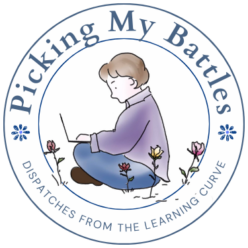
I got off work late last night. The dishwasher still needed emptying, and, not feeling like cooking, I decided to order out for all of us and treat myself to a twenty minute get away. It was the worst decision of the day, and it was the best.
When I stepped out into the dark, I could already feel the hand gripping at my chest. It’s been squeezing and releasing it for days now. I’ve been here before. It’s a place at the bottom and I hit it every few years. It’s a place where all hell can be breaking loose, or – like last night – not. It’s a place where I have a family I love and that loves me, where work and lifework are going well, where there are new friends and rekindled friendships. And it’s a place where, inspite of fortune, seemingly, to spite myself, I worry over every word I speak or write, where every noise and voice is like a hammer on my soul, where I start clicking the buttons to withdraw from my world, and where that hand tightens around my chest until a dark winter road is as good a place to say good night as any other.
I’ve been here before. The way out of that place is often the repetition of the litany that people need me to keep it together, that no child should ever think a mother chose to leave him for any reason. Last night it was enough to get me home to where our nightly music had already begun playing and recalling the better way out.
The soundtrack of our evening is dissonant and sometimes silly. It starts with a “Hi Mom!” and a “Thanks for getting dinner!.” The sound climbs on the rhythm of plates being arranged on a table by an unsteady but enthusiastic six-year-old pair of hands. The song swells on a chorus of “Guess what happened to me?” and “Did I eat enough to get desert?” It’s all punctuated by staccato laughter, until it crescendos on a joke gone overboard.
The next movement is a long decrescendo. It’s a tremolo of “Mom, can you wash my jeans for tomorrow?” , “Mommy, can you come snuggle with me?”, and “Mom, where’s the extra shampoo?” The song modulates as I squeeze into the lower bunk for a goodnight kiss and snuggle with Thing2, starting as I lie on a remote and the car it controls sounds its own momentary surprise symphony. The strains of “My Sweet Lord” being played on the Big Guy’s ancient acoustic guitar close out the the soundtrack as a still small pair of arms wraps around me, and the chirping becomes soft snoring and the snoring becomes salvation for another night.









